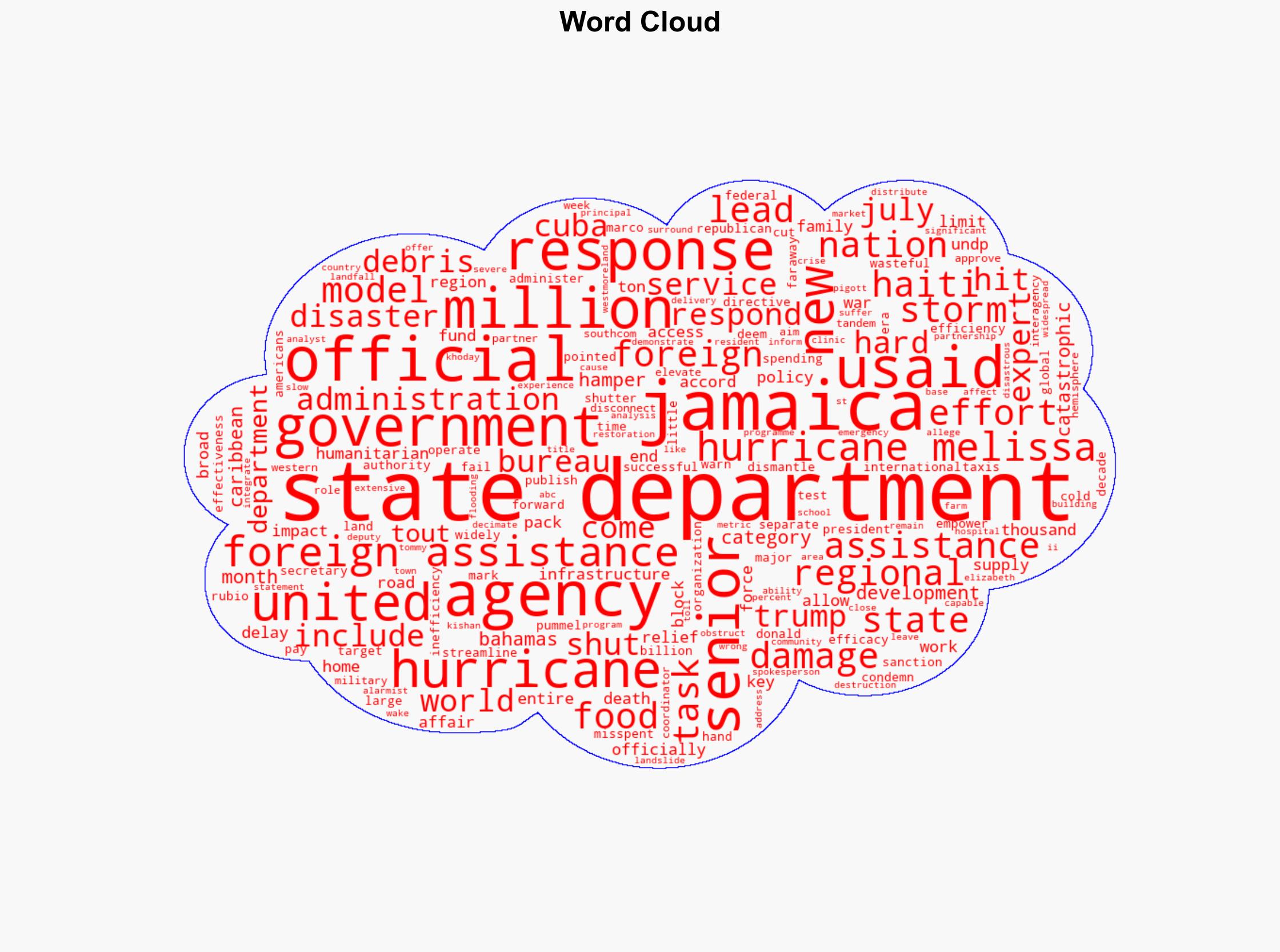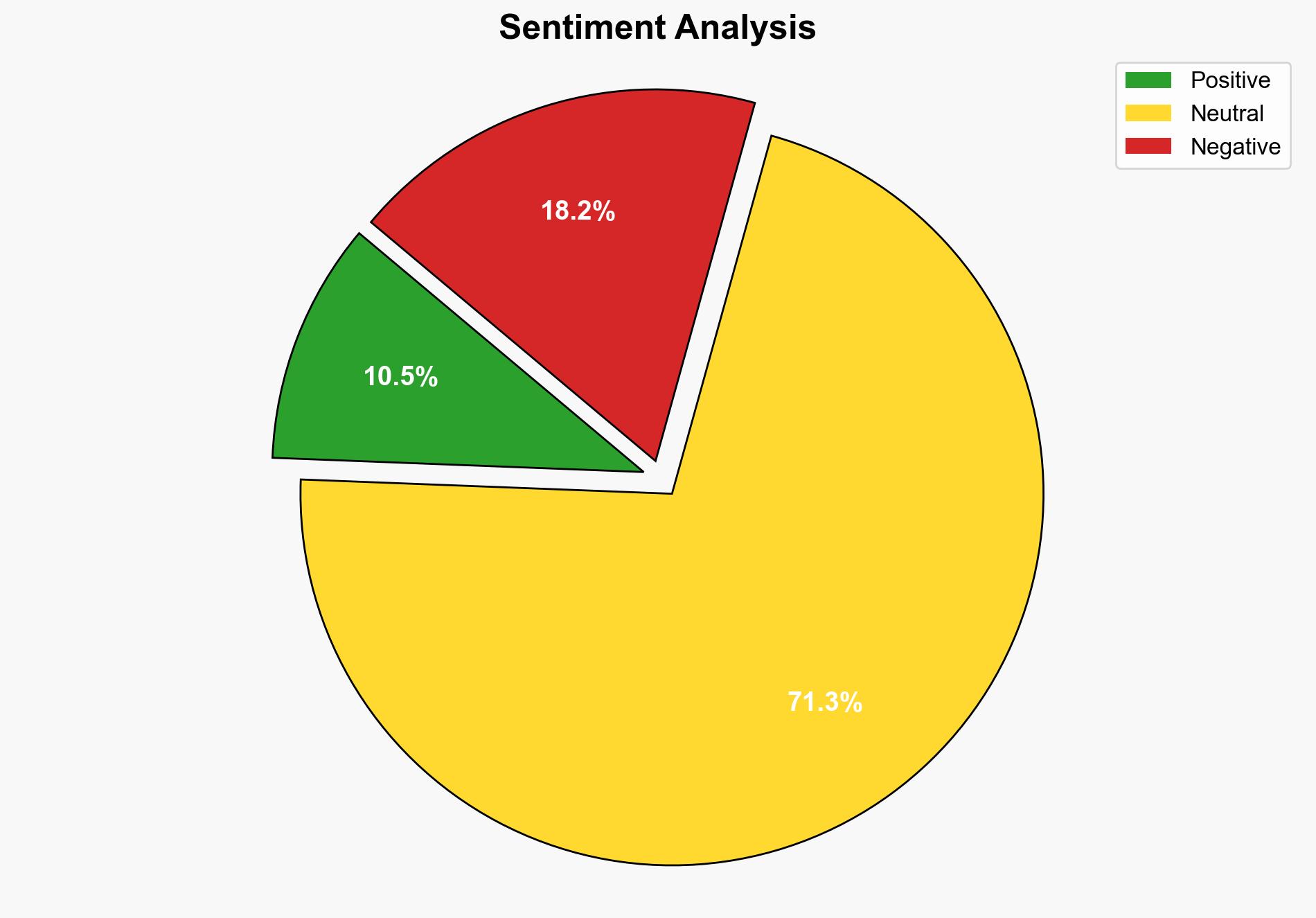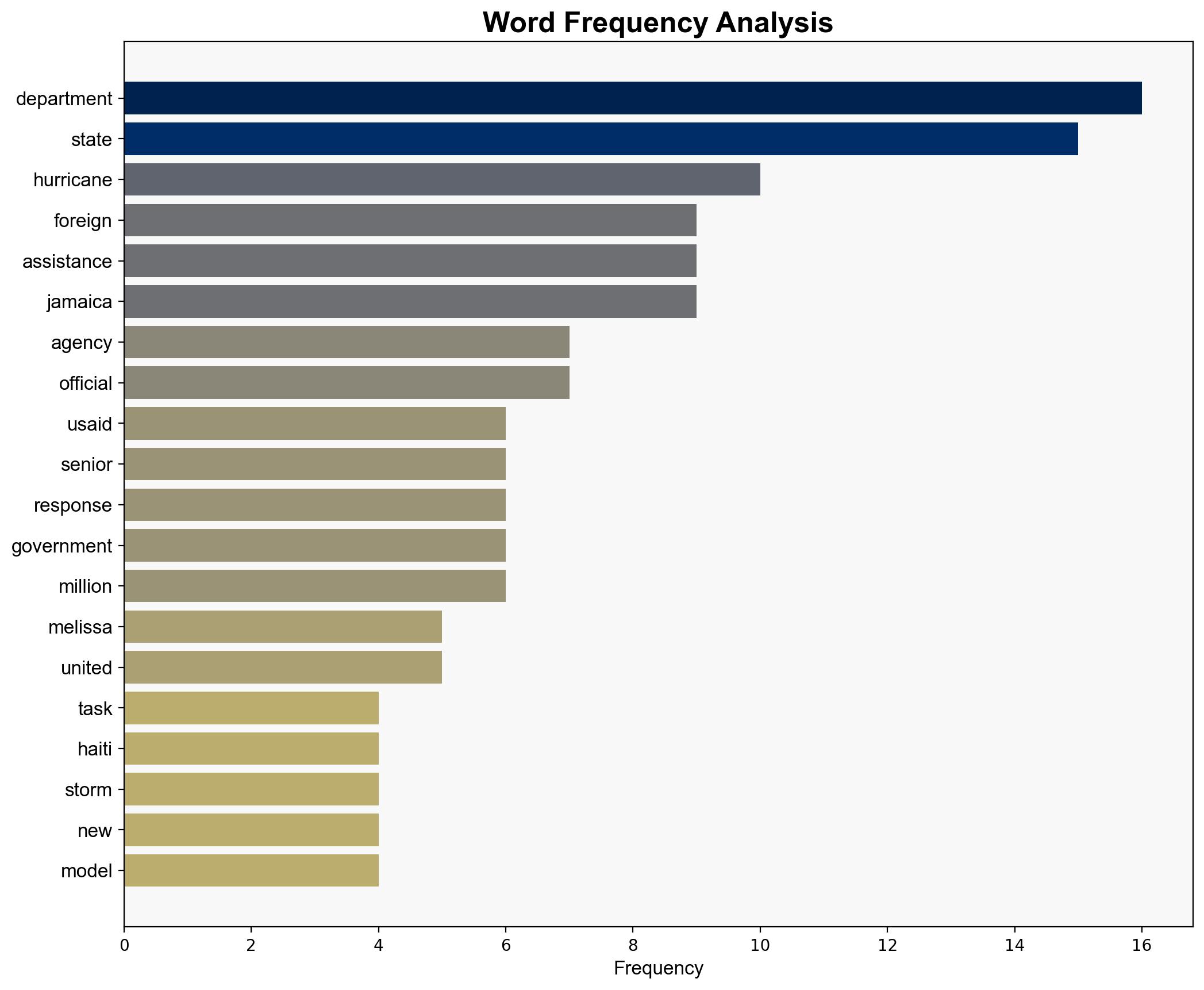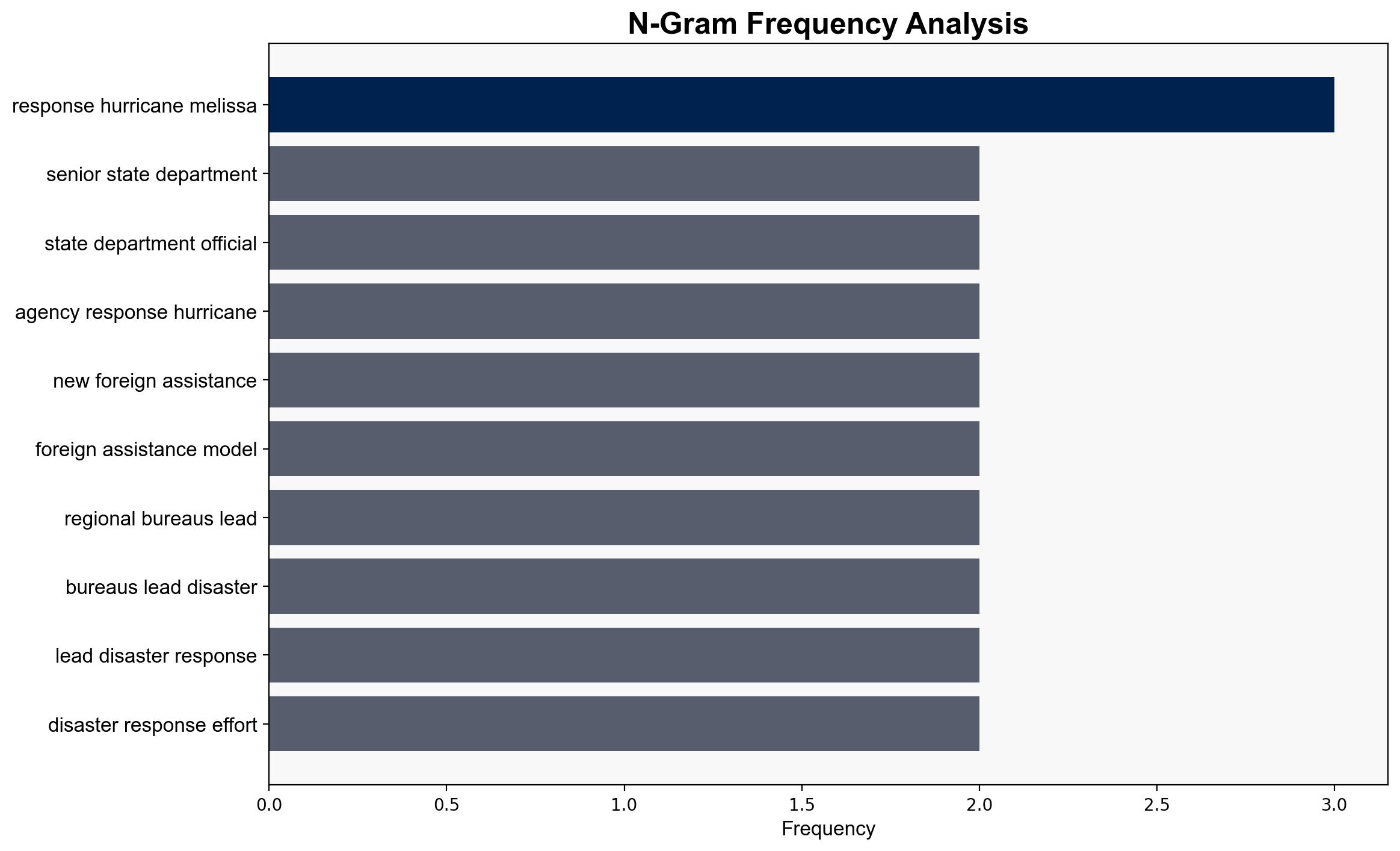State Department touts foreign assistance during Hurricane Melissa without USAID – ABC News
Published on: 2025-11-10
Intelligence Report: State Department touts foreign assistance during Hurricane Melissa without USAID – ABC News
1. BLUF (Bottom Line Up Front)
The State Department’s response to Hurricane Melissa, without USAID, is presented as a success under a new foreign assistance model. The most supported hypothesis is that the State Department is attempting to validate its new model by highlighting its effectiveness in disaster response. Confidence in this hypothesis is moderate due to limited independent verification of the model’s efficacy. It is recommended to monitor the long-term impacts of this model on foreign assistance and disaster response capabilities.
2. Competing Hypotheses
1. **Hypothesis A**: The State Department’s new foreign assistance model is genuinely more effective and efficient than the previous USAID-led approach, as evidenced by the successful response to Hurricane Melissa.
2. **Hypothesis B**: The State Department’s claims of success are primarily aimed at justifying the dismantling of USAID and promoting a politically motivated agenda, regardless of actual effectiveness.
Using the Analysis of Competing Hypotheses (ACH) 2.0, Hypothesis B is better supported due to the lack of independent assessments and the political context surrounding the dismantling of USAID.
3. Key Assumptions and Red Flags
– **Assumptions**: Hypothesis A assumes that the new model’s success is replicable and not an isolated incident. Hypothesis B assumes political motivations are the primary drivers of the narrative.
– **Red Flags**: The absence of independent evaluations of the new model’s effectiveness and potential bias in the State Department’s self-assessment.
– **Blind Spots**: Lack of detailed data on the operational differences between the new model and the previous USAID approach.
4. Implications and Strategic Risks
– **Geopolitical Risks**: If the new model fails in future crises, it could undermine U.S. credibility in international disaster response.
– **Economic Risks**: Potential inefficiencies in the new model could lead to increased costs and resource misallocation.
– **Psychological Risks**: Perception of U.S. foreign assistance could be negatively impacted if the new model is perceived as politically driven rather than needs-based.
5. Recommendations and Outlook
- Conduct independent evaluations of the new foreign assistance model’s effectiveness.
- Engage with international partners to gather feedback on the new model’s impact.
- Scenario Projections:
- **Best Case**: The new model proves more efficient, enhancing U.S. disaster response capabilities.
- **Worst Case**: The model fails in future crises, leading to significant humanitarian and diplomatic fallout.
- **Most Likely**: Mixed results with some improvements in efficiency but challenges in coordination and perception.
6. Key Individuals and Entities
– Marco Rubio
– Tommy Pigott
– United Nations World Food Program
7. Thematic Tags
national security threats, disaster response, foreign assistance, geopolitical strategy





